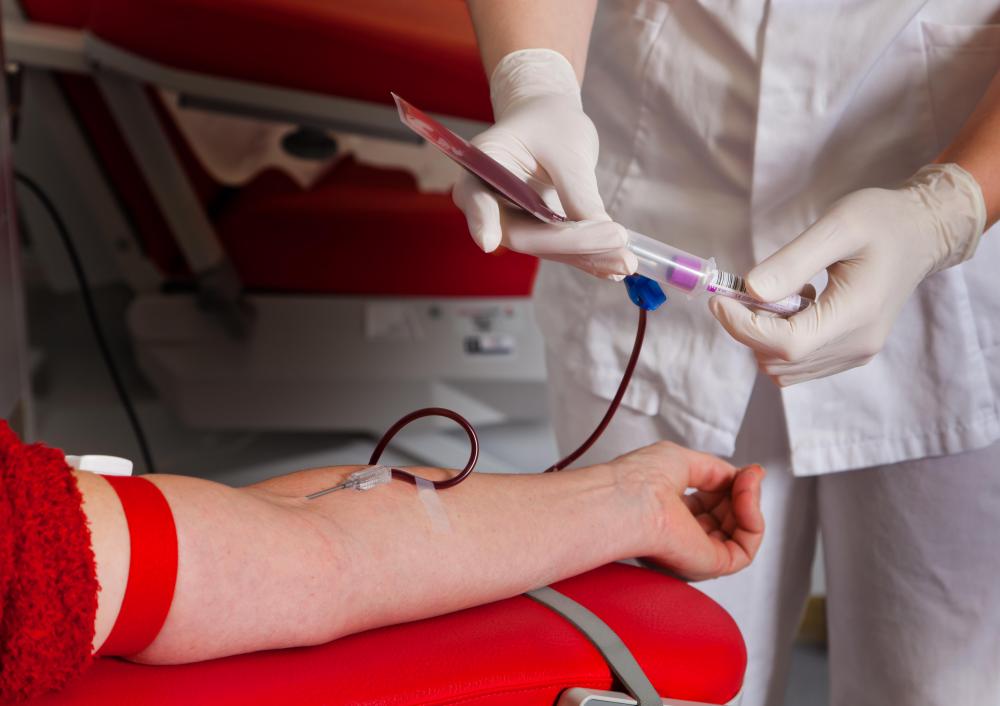At WiseGEEK, we're committed to delivering accurate, trustworthy information. Our expert-authored content is rigorously fact-checked and sourced from credible authorities. Discover how we uphold the highest standards in providing you with reliable knowledge.
What are Hepatitis B Antigens?
Hepatitis B is a viral infection affecting the liver. When the virus enters the body, it replicates, or makes copies of itself, releasing hepatitis B antigens, a specific protein. They are a useful marker in the blood to discern between acute and chronic hepatitis B and immunity status after vaccination. There are three hepatitis B antigens: the surface antigen, e antigen and core antigen.
Acute or chronic hepatitis B may occur. Chronic hepatitis B is a common co-infection in patients with HIV, requiring the use of specific anti-retrovirals that are also active against hepatitis B. Measuring the presence of hepatitis B antigens and antibodies in the blood and liver allows diagnosis of the type of hepatitis B present and at what stage of illness the patient is. Antibodies are proteins made by the body as part of its immune response to fight the virus.

There are three types of hepatitis B antigens. The surface antigen (HBsAg) is released immediately after infection and is used as part of diagnosis of an acute infection. If HBsAg is present for longer than six months, it is indicative of a chronic infection. The e antigen (HBeAg) is found once the virus begins actively replicating in the liver and indicates that the person is highly infectious. The core hepatitis antigen (HBcAg) is only found on liver biopsies, not in the blood. People who are hepatitis B antigen positive may also transmit the infection to others, be they in the acute or chronic stage.

Hepatitis B is highly transmittable via blood and body fluids. There is a vaccine available, which is given routinely to people at high risk of exposure to hepatitis B. These would include laboratory personnel, health care workers, sewerage workers, and any other person exposed to blood or body fluids in the workplace.
Measurement of hepatitis B antibodies after vaccination can measure a sufficient response. Vaccinated people will show the presence only of hepatitis B antibodies, not antigens. If hepatitis B antigens are present, it is an indication of previous or current exposure to hepatitis B.

Regardless of vaccination status, anybody exposed to blood or body fluids should use barrier methods to minimize the risk of exposure. These include gloves and protective wear, in the case of occupational exposure, and condoms, in the case of sexual exposure. Hepatitis B is a serious disease that may result in long-term liver damage, including cirrhosis and liver cancer.
AS FEATURED ON:
AS FEATURED ON:
















Discuss this Article
Post your comments